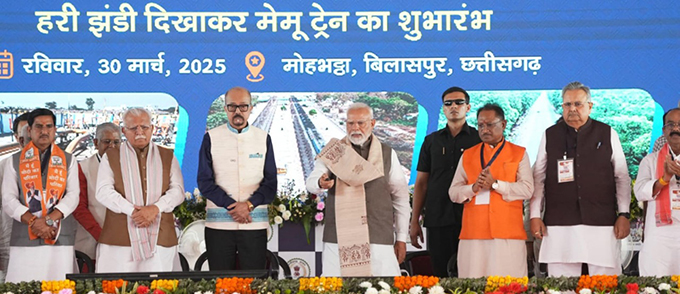India's Urban Future: how to make our cities inclusive, productive and sustainable? A workshop by Dr. Shahana Chattaraj organized by Indian School of Public Policy (ISPP) in the capital city
New Delhi, 05 nd March, 2019: We live in an urban, and?rapidly urbanizing, world.?In the coming decades, India?will add an?estimated 400 million city dwellers to its urban?population. Cities, large and small, will be crucial arenas in global efforts?to promote sustainable development, tackle?climate change and reduce poverty?and inequality. Urban transformation is much more than a demographic change.?Cities, in India as elsewhere in the world, are?celebrated for their dynamism,?diversity and resilience, their potential for creativity and innovation. At the?same time, Indian cities face critical problems of socio-economic and spatial?inequalities, joblessness, environmental pollution and?climate risk.
In light of the above, Indian School of Public Policy or ISPP organized a workshop on India's Urban Future: How to make our cities inclusive, productive and sustainable, on the 02 nd of March, 2019, at the PHD Chambers of Commerce, New Delhi.
Prof. Dr. Yugank Goyal, Member, Governing Council, IPSS, commenced the workshop with a brief on the peripheral objective: "An urban transformation is underway in India, with deep social, economic and environmental implications. It is taking place in a time of environmental crisis, technological change and political flux. How should policy-makers, researchers, practitioners and citizens understand this transformation, and respond to its challenges and opportunities??This is particularly important because rural to urban migration has reached unprecedented levels in India and cities have to rework their governance apparatus if they are to remain socially and economically inclusive as well as
environmentally sustainable. The workshop was conducted by Dr. Shahana Chattaraj, whose research focuses on urban governance and policy in Indian megacities, the informal economy and informal
urbanization, and urban infrastructure and development planning.
Dr. Chattaraj emphasized that urban policy problems are complex, and also interconnected, and cover issues such as jobs and industrialization; migration, infrastructure and housing; social policy and planning; land and urban development; climate change adaptation and mitigation. "Urban?policy works at the scale of cities, neighbourhoods and regions - it is an?emerging and increasingly important policy arena that will play a central role?in shaping India's?future.?A critical question?for India's future, and one that we need to give serious thought to, is?what?sort of governance institutions, policy approaches, skills and information we?need?for effective urban policy and planning? Cities provide a?fertile ground for multi-
disciplinary research and?engagement between researchers, policy-makers?and?practitioners,"
added Dr. Chattaraj. ?
Post the workshop, Prof. Goyal took questions from the audience pertaining to ISPP and its one-year flagship programme - PGP in policy, design and management. The post graduate programme that provides a unique focus on design and management in public policy has been launched by policy makers, industry leaders, and academicians, and blends theory with experiential learning. People like Nandan Nilekani, Arvind Panagariya, Vijay Kelkar are associated with ISPP as patrons and advisors.
Indian School of Public Policy or ISPP organized a workshop on India's Urban Future
Place:
Bhopal 👤By: DD Views: 4655
Related News
Latest News
- पूरे मध्य प्रदेश में ईद की नमाज़ और सेवइयों के साथ मनाई गई; वक्फ संशोधन विधेयक के खिलाफ़ श्रद्धालुओं ने जताई चिंता
- चीन की AI रोबोट सेना: एक नई वैश्विक चुनौती
- ट्रंप के ऑटो टैरिफ्स: यूरोपीय उद्योग को आर्थिक झटके का खतरा
- प्रधानमंत्री नरेंद्र मोदी से मिली छत्तीसगढ़ को 33 हजार 700 करोड़ रुपए की विकास परियोजनाओं की सौगात : मुख्यमंत्री विष्णुदेव साय ने जताया आभार
- भोपाल में आईसीएआई द्वारा एआई और बैंक ऑडिट पर राष्ट्रीय सम्मेलन का आयोजन हुआ
- भगवान श्रीकृष्ण के जीवन से जुड़े स्थानों को तीर्थस्थल के रूप में किया जा रहा है विकसित : मुख्यमंत्री डॉ. यादव


















